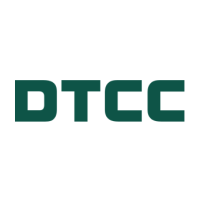
Get Paid to Share Your Expertise
Help shape the future of business through market research studies.
See Research StudiesBusinesses across the board are adopting artificial intelligence (AI) technologies in a range of capacities with a gamut of purposes – streamlining processes, improving efficiencies, cutting costs, and mitigating human error in data compilation and analytics, among other uses.
In fintech, AI is being used for everything from optimizing fraud detection and forecasting market volatility.
The Depository Trust and Clearing Corporation (DTCC), which works to protect the security of the global financial system, remains at the forefront of AI innovation, incorporating several emerging technology best practices into its day-to-day operations.
DTCC provides clearing and settlement services, processing trillions of dollars of securities transactions each day – and AI is helping the company do its job with more stability, certainty, and security. However, there are hurdles to overcome amidst all the advancements.
“The role AI plays at DTCC constantly evolves,” says Jerome Andrews, the Director of Technology, Research and Innovation. “We have deployed tools that utilize various forms of AI.”
For example, DTCC uses machine learning to be more proactive about cybersecurity threats. The fintech firm also expects that generative AI will “enable greater stability and efficiency in the global capital markets.”
Andrews, who runs the AI & Data vertical within the Internal Technology Research and Innovation group at DTCC, is focused on exploring this kind of emerging technology and the increasing ways in which the company can continue to leverage it – from studying how intelligent self-service can transform the client experience to how content generation, anomaly detection, and event prediction can optimize productivity and enhance risk mitigation.
“My focus is the execution of innovative technology experiments, including primary research, vendor assessments, and process innovation,” he tells Ivy Exec. “There are multiple projects at any one time with a mixture of internal resources and external vendor delivery teams. Given the nature of this vertical, the role provides excellent learning opportunities on some of the newer technologies reinventing the business and technological landscapes.”
His team has completed several experiments already.
“The most exciting projects were 1) when we determined if sentiment is related to client satisfaction and 2) how predicting breaks in straight-through processing can reduce risk,” Andrews shares.
Another particularly challenging one, Andrews says, was his team’s greatest frustration but has since become one of its greatest victories.
“Accessing data for a particular AI experiment was orders of magnitude more time-consuming than planned,” he explains. “That led to my team determining how synthetic data could help accelerate future developments. We researched for an enterprise tool that had the capabilities we needed and secured a budget, and now multiple departments will benefit from the initiative.”
There are even more AI-powered projects on the horizon. For each one, however, the fintech firm has to be delicate in how it deals with the vast amounts of sensitive financial data it handles. Different projects come with different risks.
“People, process, and technology are at the forefront of DTCC’s overall security program; security is everyone’s responsibility with commitment, so processes are developed, tested, and shaped to address all identified risks,” says Ronald Jones, Director of Architecture and Enterprise Services. “We have a good culture of innovation within a risk and regulatory compliance mindset. We begin innovation with the governance and controls first, so rather than [being limitations], they provide the boundaries to our AI scope and streamline our ability to execute.”
General trust in AI technology is also an industry-wide cause for concern. Jones says that the most significant challenge associated with Large Language Models (LLM) is trust.
“The National Institute of Standards (NIST) has defined Artificial Intelligence Trust (trustworthiness) in seven categories: safe, secure, explainable, privacy-enhanced, fair without bias, reliable and, lastly, transparent,” he explains. “Given the broad range of categories that comprises trust, the complexity challenge is immense and one of the more interesting to solve.”
Furthermore, because DTCC operates on a global scale, the company must also manage cultural and regulatory differences across various regions when implementing AI solutions, ensuring compliance with various jurisdictions. Navigating new territory is always a fickle feat, which is why, at its core, DTCC’s brand promise is to always “innovate purposely.”
“At DTCC, innovation, and creativity are supported by our Management Committee, which is our most senior leadership area,” Jerome Andrews says. “[According to our company promise]: ‘We don’t innovate for the sake of change or to chase the latest fad. We believe innovation is rooted in understanding the nuances of how financial markets operate and the unique needs of our industry. We pinpoint a problem, work collaboratively to find the best solution, and harness our ingenuity and creativity to make the financial markets safer and more resilient, efficient and lower cost.’”
As the field of AI rapidly evolves, DTCC makes sure to keep the aforementioned promise top of mind while also keeping abreast of the latest advancements and best practices in emerging technologies.
“At DTCC, the sharing of information on new capabilities is part of our culture,” Andrews says. “We have an Open Innovation model for research and development and collaborate with industry partners, clients, and academia to ensure we remain well informed while also providing us a pipeline for next-generation talent.”
Learn more about DTCC’s risk management efforts when it comes to its impressive AI innovation, or explore careers with the company to see for yourself. Forward-thinking professionals with AI skills are encouraged to explore the firm’s Talent Community.
“The ability to code in compiled (e.g., C++) and interpreted (e.g., Python) languages is always beneficial,” Jones says. “Another key skill for career success is a commitment to always learning new skills. Technology will continue to evolve at a fast rate, so reading widely and challenging yourself to learn new skills is paramount to a successful and long career [at DTCC or elsewhere].”

 DTCC
DTCC